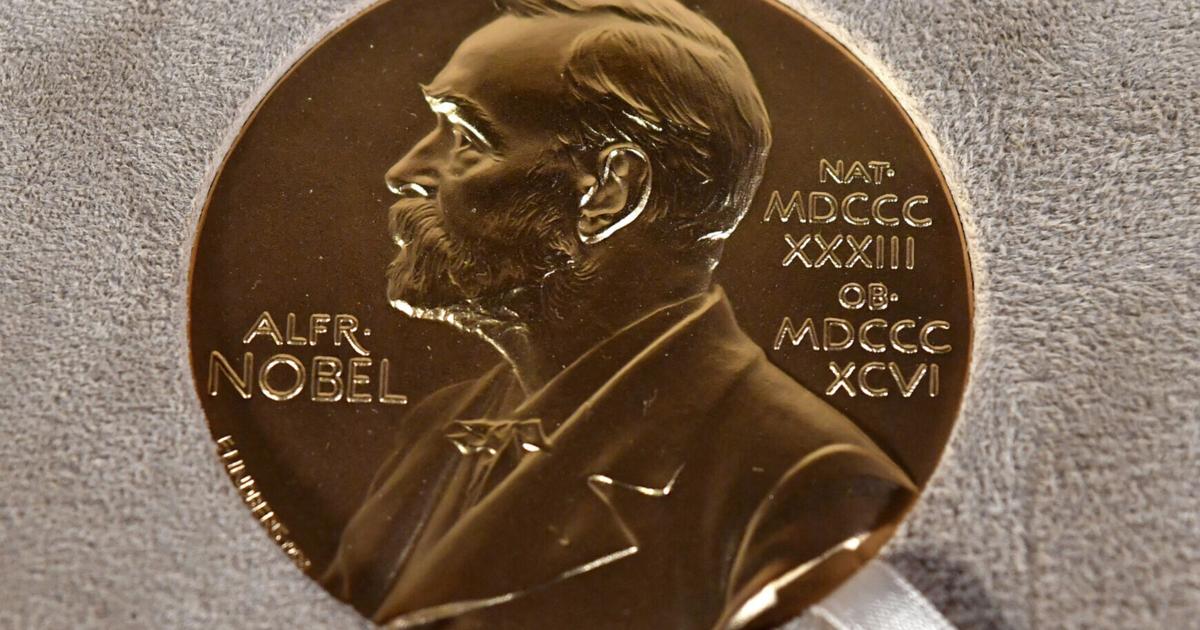
Washington University professor Philip Dybvig was among three economists awarded a Nobel Prize on Monday, Oct. 10, 2022.
ST. LOUIS — Three economists were awarded a Nobel Prize on Monday for research on financial crises, including a Washington University professor whose work on bank runs has become foundational in the field of economics.
The winners were recognized for papers published in the early 1980s that helped shape the way economists think about banks and their roles in times of financial calamity.
Washington University professor Philip Dybvig and University of Chicago finance professor Douglas Diamond were awarded the Nobel Prize in Economic Sciences for a paper they co-authored on bank runs, when depositors believe a bank is about to fail and rush en masse to withdraw money.
They received the prize alongside Ben Bernanke, who chaired the Federal Reserve during the Great Recession. Bernanke was awarded for a 1983 paper on the role of banks in the Great Depression.
People are also reading…
Dybvig and Diamond’s paper cast bank runs as not just a symptom of economic damage but a contributor. The work delves into the instability they create and the role of protections like deposit insurance.
“People, before that time, largely thought of bank runs as manias or psychological phenomena,” Dybvig said in an interview Monday. But bank runs are based on rational fears, he said, and with appropriate measures in place, they can be prevented.
The “Diamond-Dybvig model” has become one of the basic frameworks economics students are taught about financial institutions, said Gaetano Antinolfi, a Washington University economics professor. The ideas in the paper have gone on to generate “a colossal literature,” he said.
Dybvig, 67, was raised in Kettering, Ohio, outside of Dayton. He received a bachelor’s degree from Indiana University, where he double-majored in math and physics. He said he chose the school in part because of its music program — Dybvig is a classically trained piano player and still enjoys playing blues and jazz on the keyboard. He went on to earn a master’s degree and Ph.D. from Yale University.
The Journal of Political Economy published the Nobel Prize-winning paper in 1983, when Dybvig was in his late 20s.
Dybvig joined Washington University’s Olin Business School in 1988. He said Robert Virgil Jr., then dean of the business school, played a large part in bringing him to St. Louis.
Over the years, people have suggested that the oft-cited paper on bank runs could receive a Nobel Prize, Dybvig said. But winning the prize with Bernanke, who “took what academics were doing and used it to help steer the country through some really difficult times,” was a welcome surprise, he said.
Bernanke’s paper showed that the banking crisis both contributed to the Great Depression and extended the downturn.
“People didn’t think of the financial system as being an important part of the business cycle, an important part of what was driving the economy,” Bernanke said Monday at the Brookings Institution, a nonprofit public policy organization in Washington. “As one professor told me when I gave this paper, ‘The financial system is just a veil. It just tells you who owns what.’”
The Nobel Prize has been awarded to 26 people at Washington University — most in the fields of physiology and medicine. Dybvig is the second to receive the prize for economics. The late Douglass North, a Washington University professor, received the 1993 Nobel Prize in Economic Sciences alongside Robert Fogel, a University of Chicago economist.
https://ift.tt/fTtAwm2
Business
Bagikan Berita Ini














0 Response to "Washington U. economics professor awarded Nobel Prize for insights on financial crises - St. Louis Post-Dispatch"
Post a Comment